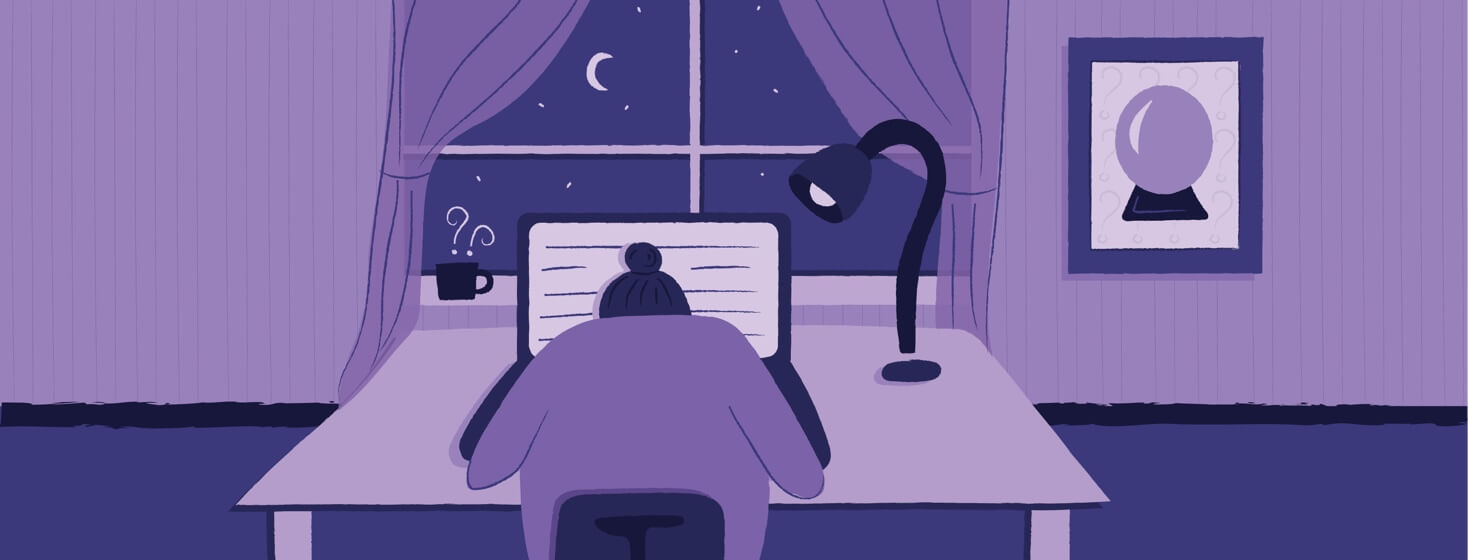Medical Mystery Tour: What Caused My PV?
When I was first diagnosed with polycythemia vera (PV) three years ago, I was curious on how I, a relatively healthy person, wound up with this rare, progressive and chronic blood cancer. I met with my hematologist and later with a myeloproliferative neoplasm (MPN) specialist. One of my first questions was what caused my body to go so horribly awry. Both said although it was likely caused by a gene mutation there was no known etiology for any of the MPNs, including PV. Basically, they said, it is a mystery.
Paging Dr. Google to learn about JAK2 mutations
A mystery? That explanation didn’t really work for me. With having a science background, I felt there had to be a reason. Diseases just don’t magically appear. So…what did I do? I blew up the Internet researching.
JAK2 mutations and PV
The first thing I learned was over 95% of the time there is a Janus kinase (JAK2) gene mutation in those diagnosed with PV. The JAK2 mutation was first detected in 2005 so it’s a relatively new discovery. The JAK2 mutation causes, in layman terms, a switch that won’t shut off. This allows the bone marrow to make too many red blood cells. I had the JAK2 test and I did test positive for it.
So how did I get the mutation? Did I have this mutation from birth or did something cause my genes to mutate?
With all the searching, I only found a few articles that really discussed potential causal factors for PV and other MPNs. Well… only a few I understood anyway. Most were very technical and beyond my comprehension (and I have a degree in Biology and taught medical terminology). The best article I found was in the American Journal of Hematology back in 2012. It discussed a wide array of possibilities by consolidating the results of 19 previous studies. Several themes emerged.1
More risk factors: Eastern European descent, autoimmune diseases & occupational exposure
PV appears to be more prevalent amongst Jewish people with Eastern Europe descent. Autoimmune conditions, especially Crohn’s disease, were more common in patients with MPNs. Certain occupations with potential exposure to benzene or petroleum had a higher prevalence of PV and other MPNs than the normal population.
An article published in August 2019 in the American Society of Hematology suggests that blood cancers as a whole have a 4.1% familial link. This is a higher incidence than a number of other cancers. Higher familial risks were also observed in PV, but not as high as the general blood cancer population.2
What does it mean?
So what does this all mean for me and others diagnosed with PV?
Let’s start with the possible inherited genetic predisposition. I am of Jewish descent on my dad’s side. However, I have very few of his relatives still living so no way of knowing if they had PV.
My mom had a complicated medical history including breast cancer. She had stroke and passed away a few months later. Strokes are complications of PV. Did she perhaps have undiagnosed PV?
Did some environmental factor cause me to acquire this mutation? I am retired from the Army but I never was deployed or in any position where I handled hazardous materials. However, I did work in some questionable, mold, asbestos and lead-laden "historical" buildings during my career. Is that the reason?
Or was there some comorbidity, some relation to my other medical conditions involved? Although I don’t have Crohn’s disease, I do have hypothyroidism and had breast cancer. Does this have an impact?
Why do I care about what caused my PV?
So why I care so about the cause? There are a few reasons.
First, and most importantly, I have three kids. If there is a hereditary link and they have a higher risk, I would like to know so it can be monitored accordingly.
Another reason is Veterans Affairs (VA) disability. I retired from the Army in 2005 but didn’t show symptoms until eight years following. Did I already have it prior to separation? If a cause can be determined, I, along with many other Veterans could potentially file for VA disability for PV.
Finally, I’m just plain inquisitive by nature. I simply want to know what caused my PV!
My research, unfortunately, didn’t really provide any great insight. Therefore, I will continue investigating and maybe someday I’ll be able to disembark from this medical mystery tour.

Join the conversation